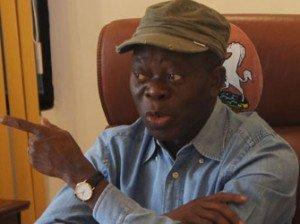


Why Edo State’s loan request was rejected, by DMO

The Director General, Debt Management Office, DMO, Dr. Abraham Nwankwo, yesterday, said that the controversial loan request of Edo State Government in the last administration was refused because the state government wanted to borrow from banks in anticipation of loans from the World Bank.
He said that Edo State Government wanted to take a bridging loan from commercial banks as it was waiting to get loans from the World Bank.
He said after due analysis of the application that was made to the Ministry of Finance which DMO was asked to assess, it was found that while the World Bank loan was being offered at concessionary interest rate, the state wanted to borrow from banks at commercial interest rate and would use the World Bank loan to off-set the loans obtained from banks.
He said the state was duly advised that it was not economical for it to use loans obtained at very low interest rate to off-set loans it was planning to take from banks at higher interest rate, as it would cost the state more than what it got from the World Bank facility to liquidate the loans from the banks.
He said the state got the World Bank facility it was waiting for that had already been approved, adding that there was no political undertone ón the issue.
Dr. Nwankwo said that Nigeria was currently near full unemployment of its resources and has a lot of room to play around with to grow the economy.
He said that while other developed economies were near full employment of their internal resources, Nigeria has a lot of human, natural and material resources that have idle and excess capacity, noting that if Nigerians were committed to developing the nation, the nation has the potential of overcoming its current challenges in three to four years.
He said that foreign investors who have waning sentiment on Nigeria markets were doing so because they did not understand the strength of the Nigerian economy.
He said there were a lot of idle resources that, when fully tapped, could jump start the economy.
He said because of the lack of understanding by these investors and officials of the World Bank, they had advised that Nigeria could borrow up to 56 per cent of its current Gross Domestic Product.
He said that Nigerians should develop positive attitude toward everything Nigerian and change the wrong negative perception of the country’s investment climate by foreign investors.
He said that the delisting of Nigeria from JPMorgan had no direct effect on Nigeria bond market as the market was already developed before the bonds were listed.
Source: Vanguard
Share this post
Naijanetwork Forum Statistics
Threads: 14108,
Posts: 17040,
Members: 6465


